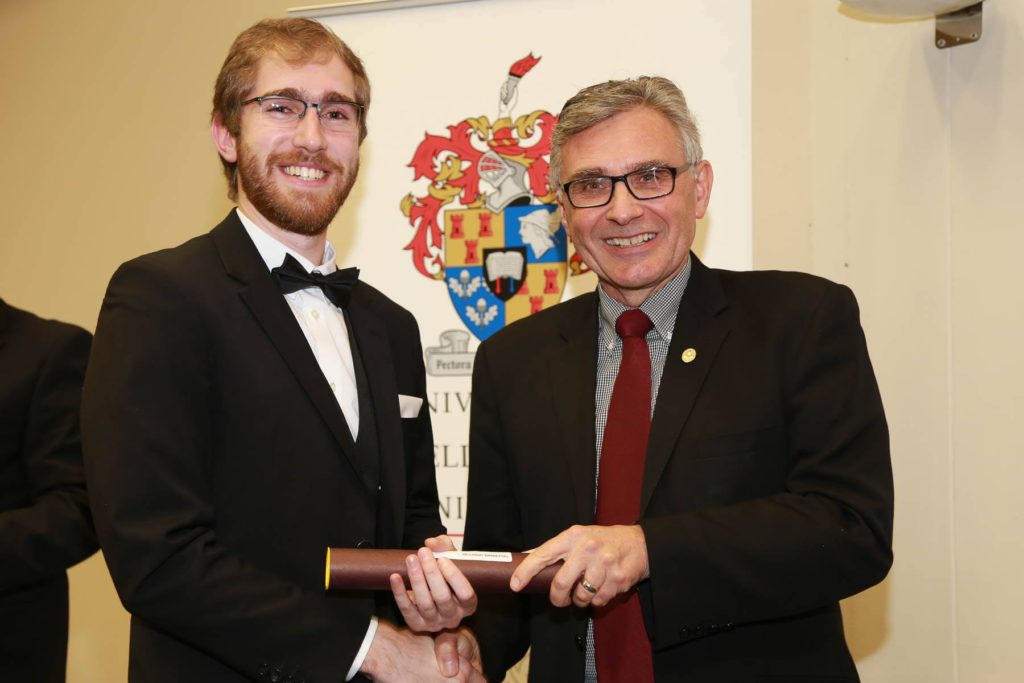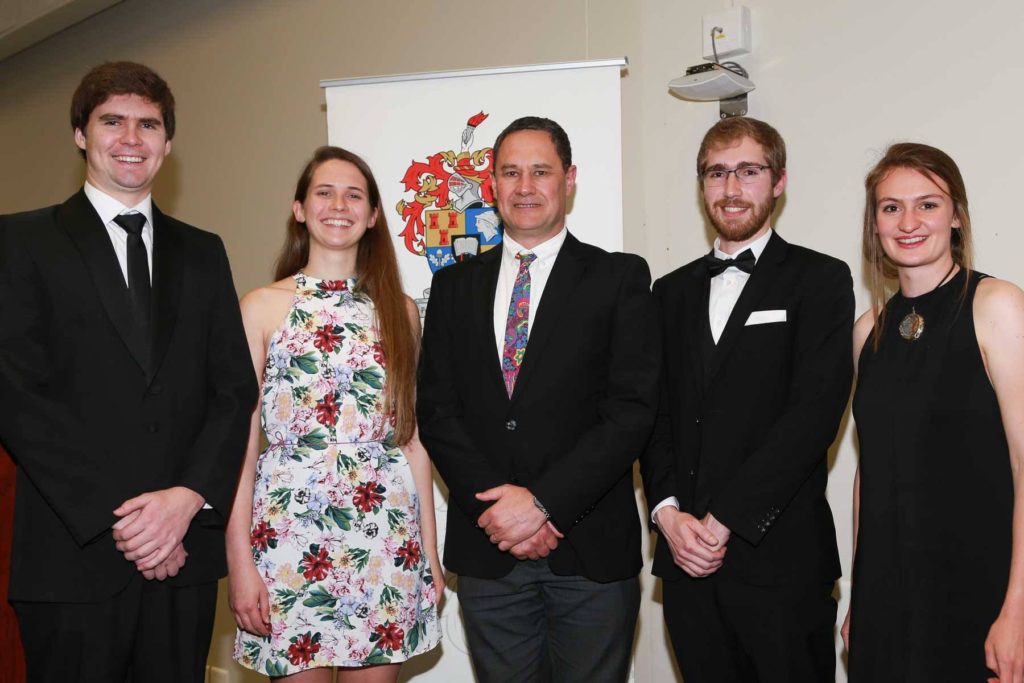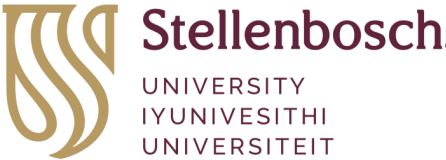
Riccardo Swanepoel (left) with the Rector, Prof Wim de Villiers (right).
Riccardo Swanepoel, currently a master’s student in the Department of Process Engineering, was recently honoured as one of the top final-year undergraduate students for 2016 at the Rector’s Awards, hosted on 5 October 2017. The top student from each Department in the Faculty of Engineering received an award at this event.
Riccardo recently made history in the Department and Faculty. In 2016, he achieved an academic average of 94.1%; only 0.9% lower than the highest academic average ever achieved in the BEng Chemical Engineering programme. In fact, during his undergraduate career he passed 42 of his 44 modules with distinction. Riccardo is also the only person in the university’s history to receive 100% for his final-year design project, and he received 93% for his final-year project, which is the highest result in the Faculty’s history. This project was of such excellent quality that it was included in a special edition of the International Journal of Chemical Engineering Data. For these achievements, he received the Chancellor’s Medal in 2016, which is the highest honour that the SU can bestow upon a student.
To learn a bit more about the modest man behind the brilliant brain, we asked him a few personal questions.
Describe yourself using three words.
Hard-working. Social. OCD.
Why did you decide on chemical engineering?
Whilst at school, I heard it was a challenging, yet rewarding, multi-disciplinary course that teaches material that can be applied in many contexts other than engineering. It also seemed quite impressive after the 2011 Engineering Winter Week.
What are three things you wish you knew when you started your undergraduate degree?
1. You should sleep whenever and wherever you get the chance;
2. Firga is hygienically questionable and should be used only as a last resort; and
3. A night cap, taken with moderation, is your friend that keeps you sane.
You are one of the students with the second highest academic average in the Department’s history. What advice would you give other undergraduate students?
Work. Work. Work. Whilst the understanding of course material and concepts are important, there is no substitute for simply sitting down and putting in the hours to cultivate a deeper understanding.
If you weren’t in chemical engineering, what career would you have chosen?
I would most likely have studied Actuarial Sciences.

At a function on 5 October, the Rector, Prof Wim de Villiers, honoured the top students of 2016 with awards for excellent achievements.
The top final-year engineering students in 2016 are from the left JC Schoeman (E&E, 90,8%), Marina Kamper (Mechanical, 84,6%),
Riccardo Swanepoel (Chemical, 94,1%) and Mattie Landman (Industrial, 85,6%).
In the middle is the (proud) Dean of Engineering, Prof Wikus van Niekerk.
Absent: Gerhard Olivier (Civil, 86,5%) and Josh Mitchell (Top master’s student in Engineering, 88%).



